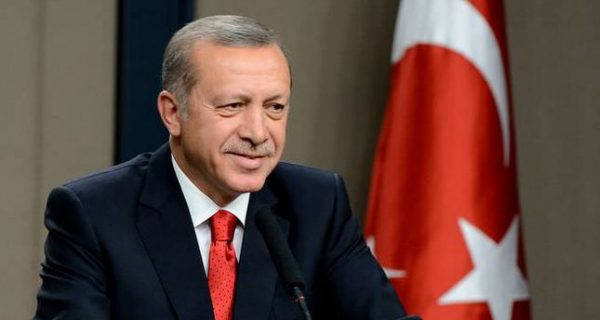Following the cases of alleged human rights violations in Republic of Turkey, 38 Nobel Laureates across the world, including Prof. Wole Soyinka of Nigeria, have written an open letter to President Recep Tayyip Erdogan, demanding for a quick return to the rule of law.
The Nobel Laureates, according to the open letter, are also asking for the abrogation of the state of emergency and full freedom of speech and expression in Turkey.
The list of the signatories to the letter include Svetlana Alexievich, Philip W Anderson, Aaron Ciechanover, JM Coetzee, Claude Cohen-Tannoudji, Elias J Corey, Gerhard Ertl, Albert Fert, Edmond H Fischer, Andrew Z Fire, Andre Geim, Sheldon Glashow, Serge Haroche, Leland H Hartwell, Oliver Hart, Richard Henderson, Dudley Herschbach, Avram Hershko and Roald Hoffmann.
Others are Robert Huber, Tim Hunt, Kazuo Ishiguro, Elfriede Jelinek, Eric S Maskin, Hartmut Michel, Herta Müller, VS Naipaul, William D Phillips, John C Polanyi, Richard J Roberts, Randy W Schekman, Wole Soyinka, Joseph Stiglitz, Thomas C Südhof, Jack W Szostak, Mario Vargas Llosa, J Robin Warren and Eric F Wieschaus.
The letter addressed to President Erdogan reads in part: “We wish to draw your attention to the damage being done to the Republic of Turkey, to its reputation and the dignity and wellbeing of its citizens, through what leading authorities on freedom of expression deem to be the unlawful detention and wrongful conviction of writers and thinkers.
“Under these circumstances, we voice the concern of many inside Turkey itself, of its allies and of the multilateral organisations of which it is a member. We call for the abrogation of the state of emergency, a quick return to the rule of law and for full freedom of speech and expression.
“Such a move would result in the speedy acquittal on appeal of Ms Ilıcak and the Altan brothers, and the immediate release of others wrongfully detained. Better still, it would make Turkey again a proud member of the free world.”
The letter made reference to a Memorandum on the Freedom of Expression in Turkey (2017), where Nils Muižnieks, the then Council of Europe Commissioner for Human Rights, warned: “The space for democratic debate in Turkey has shrunk alarmingly following increased judicial harassment of large strata of society, including journalists, members of parliament, academics and ordinary citizens, and government action which has reduced pluralism and led to self-censorship. This deterioration came about in a very difficult context, but neither the attempted coup, nor other terrorist threats faced by Turkey, can justify measures that infringe media freedom and disavow the rule of law to such an extent.
“The authorities should urgently change course by overhauling criminal legislation and practice, redevelop judicial independence and reaffirm their commitment to protect free speech.”
While making reference to some of the perceived abuses against media practitioners in the country, the Nobel laureates said: “The evidence considered by the judge in Ahmet Altan’s case was limited to a story dating from 2010 in Taraf newspaper (of which Ahmet Altan had been the editor-in-chief until 2012), three of his op-ed columns and a TV appearance. The evidence against the other defendants was equally insubstantial. All these writers had spent their careers opposing coups and militarism of any sort, and yet were charged with aiding an armed terrorist organisation and staging a coup.
“The commissioner saw the detention and prosecution of Altan brothers as part of a broader pattern of repression in Turkey against those expressing dissent or criticism of the authorities. He considered such detentions and prosecutions to have violated human rights and undermined the rule of law. David Kaye, the UN special rapporteur on freedom of expression, concurred and dubbed the legal proceedings a “show trial”.
“Turkey’s own constitutional court concurred with this criticism. On 11 January this year, it ruled that Mehmet Altan and fellow journalist Şahin Alpay’s rights were being violated by pre-trial detention, and that they should be released. Yet the first-degree courts refused to implement the higher constitutional court’s decision, thus placing the judicial system in criminal violation of the constitution. Mr President, you must surely be concerned that the lower criminal court’s defiance and this non-legal decision was backed by the spokesperson of your government.”
They, however, reminded President Erdogan of his own experience before he became president, where he was stripped of his position as Mayor of Istanbul, banned from political office and sentenced to prison for 10 months for reciting a poem during a public speech in December 1997 through the same article 312 of the penal code.
They added: “This was unjust, unlawful and cruel. Many human rights organisations – which defended you then – are appalled at the violations now occurring in your country.”
Aaron Ciechanover Albert Fert Andre Geim Andrew Z Fire Avram Hershko and Roald Hoffmann Claude Cohen-Tannoudji Dudley Herschbach Edmond H Fischer Elias J Corey Gerhard Ertl JM Coetzee Leland H Hartwell Nobel Laureates Oliver Hart Philip W Anderson President Recep Tayyip Erdogan Prof. Wole Soyinka Richard Henderson Serge Haroche Sheldon Glashow Svetlana Alexievich


